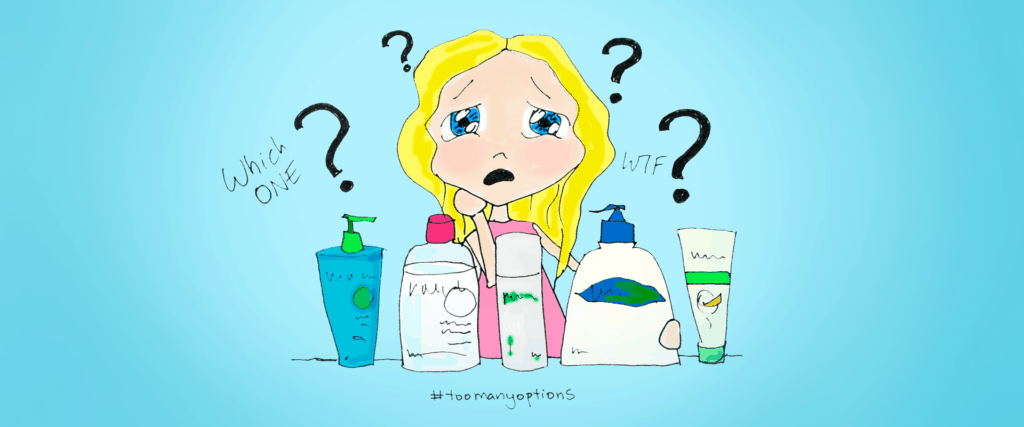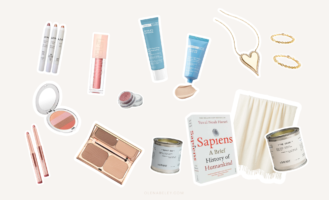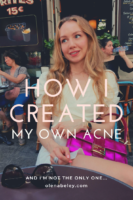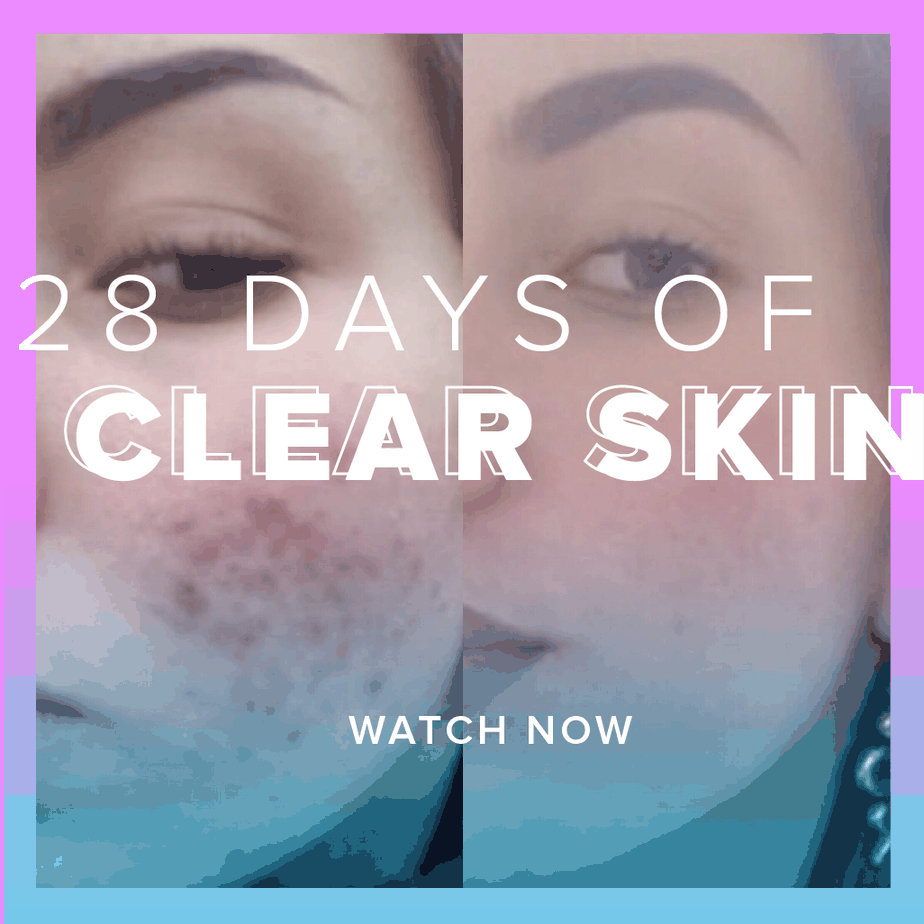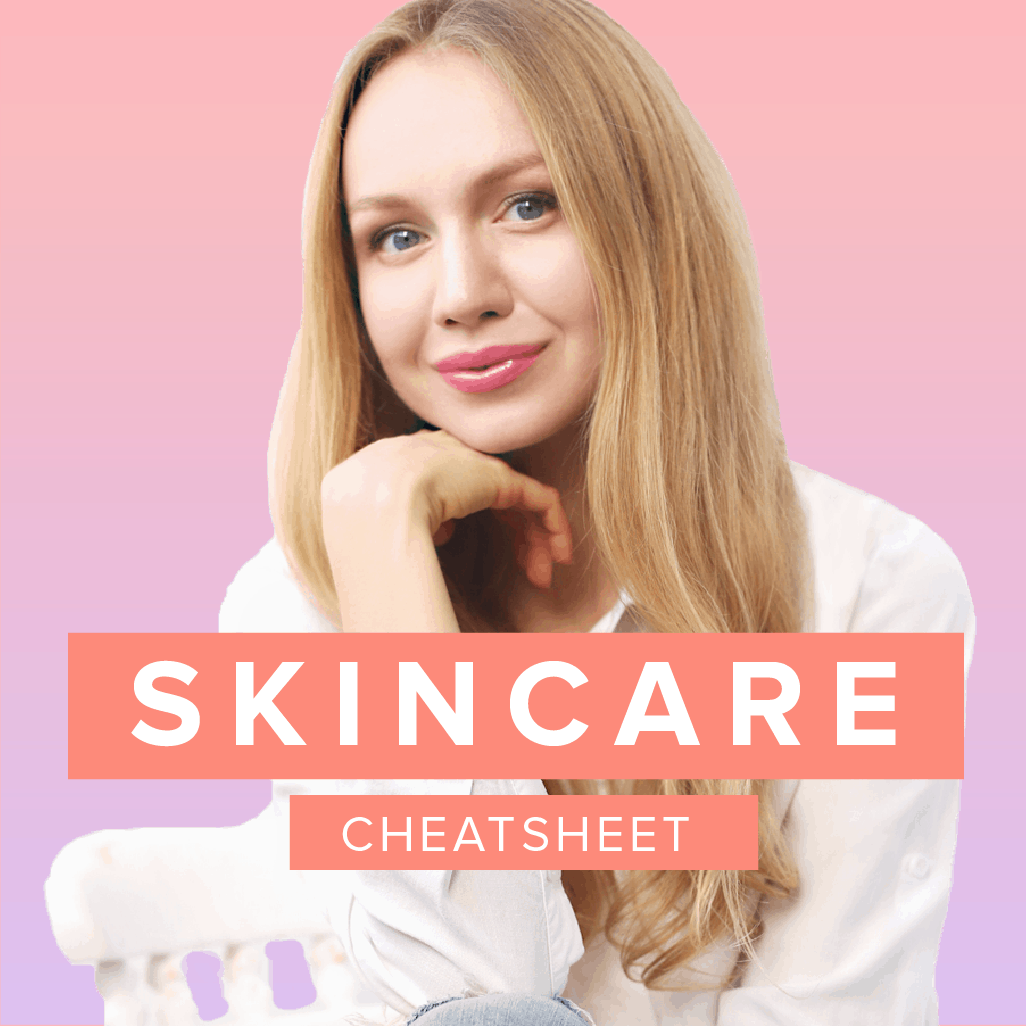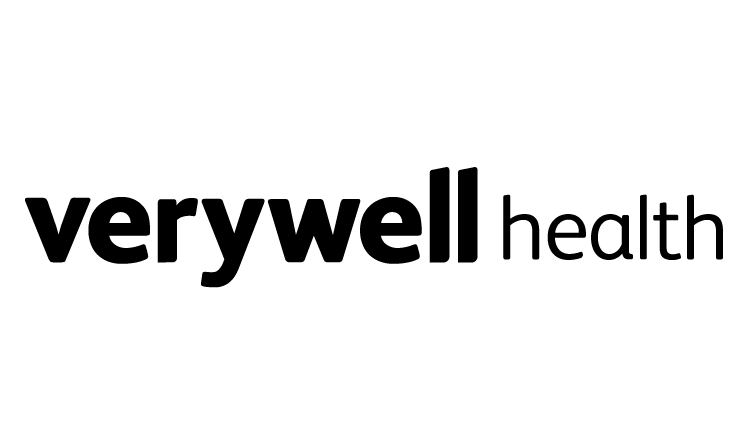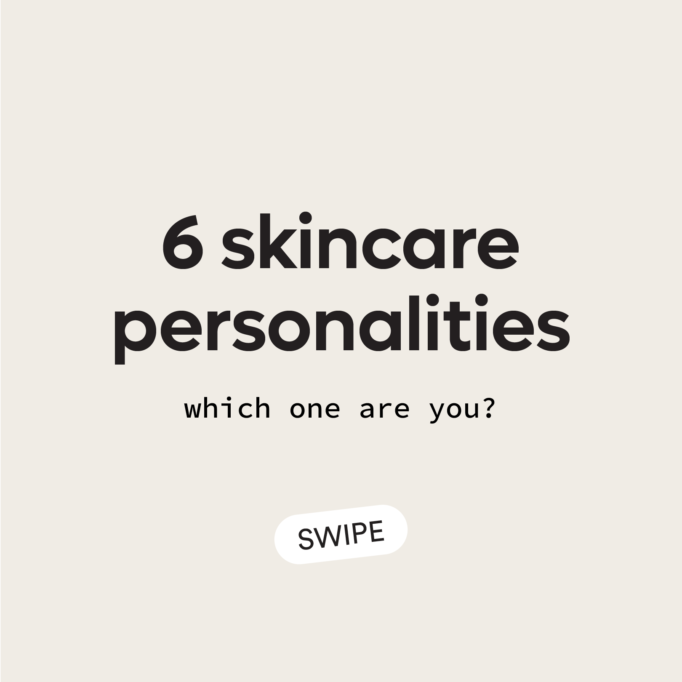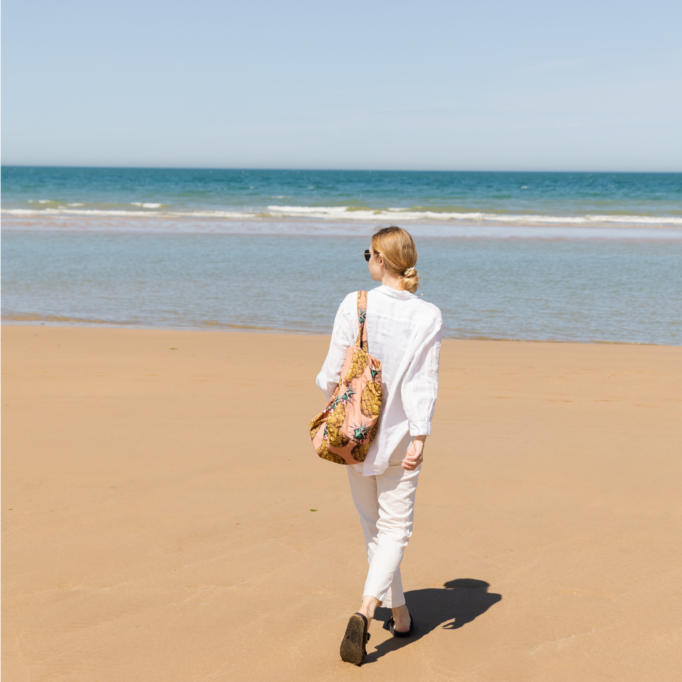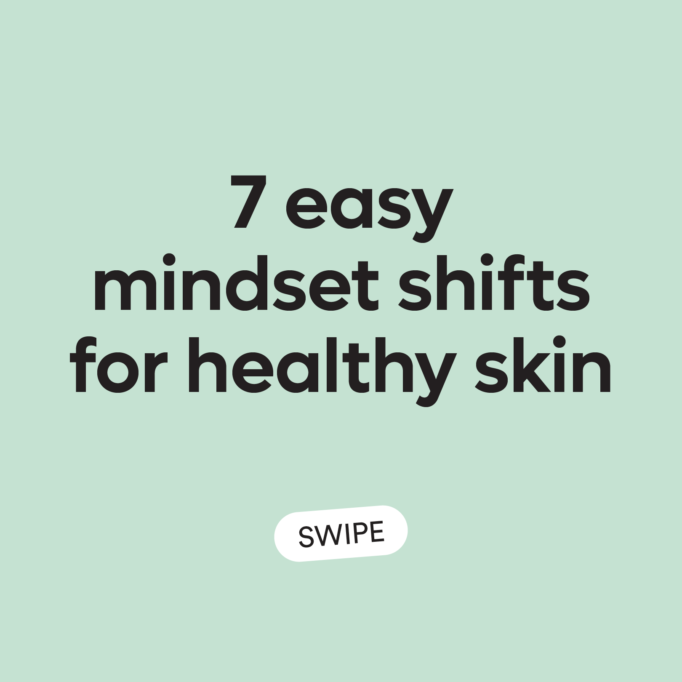Today I will discuss why a good cleanser is important, what signs to look out for if you’re using the wrong cleanser, and which cleansers you can safely use for great, happy, irresistible skin. I will also cover basic cleansing techniques so you know what you’re doing!
I’ve heard people completely discount the importance of using a good cleanser… To their detriment.
I’ve seen people use shampoo and bars of soap on their skin, because what’s the difference? It only takes 45-120 seconds to wash your face anyway. The product doesn’t stay on your skin for that long…
But the effects of a bad cleanser compound over time, and your skin gets progressively worse. Then you wonder why… 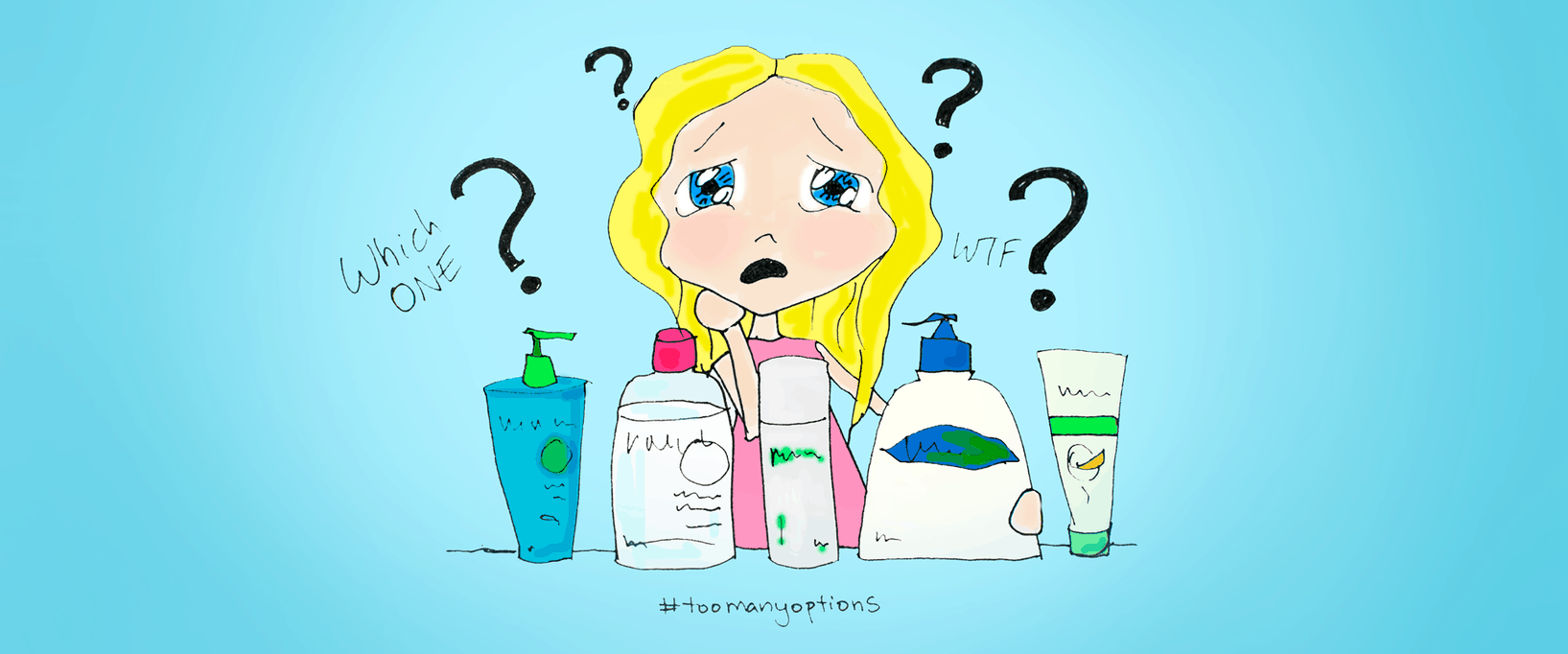 Does a cleanser really matter?
Does a cleanser really matter?
I big resounding YES! A cleanser really does matter, and finding the right one is extremely important. Don’t worry, I’ll totally tell you which ones are good.
If your cleanser doesn’t suit your skin the following problems can occur:
1. Your skin can be unnecessarily dried out, stripped of it’s natural moisture – this can result in flakiness.
2. Your skin might be irritated by the fragrance or soaps in the cleanser – ingredients matter.
3. Your skin might clog more if the cleanser is too rich and/or leaves a film on your face.
All this can lead to acne or make acne worse. There’s no point in traumatizing your delicate skin.
You should monitor how your skin reacts. If you get any of these reactions from your cleanser, than you should switch to another one:
1. Your skin feels squeaky-clean after you wash your face. And I mean squeaky.
2. Your skin feels tight after you wash.
3. Your skin is redder than usual after you wash.
4. Your skin flakes a lot.
Sound familiar?
Cleansers will not actually CHANGE your skin type but they can influence the overall quality of your skin. They are used to remove excess sebum, makeup, and impurities – that’s all.
Cleansers are for cleansing, not for performing miracles, or curing what ails you…Unless what ails you is dirt on your face.
With hundreds of cleansers available to you, I know it’s tempting to want to try a lot of different ones.
A cleanser is just meant to clean your skin. However, it’s not meant to STRIP your skin entirely of moisture. This can damage your skin, allowing for more bacteria and impurities to stick around.
So the wrong cleanser can actually ruin your delicate, wonderful skin.
I don’t know about you, but personally, I love being clean but I don’t believe in using just anything on my face…
I have a lot of experience with different cleansers. I know that even if everything stayed the same in my skin care routine, and I just switched cleansers – my skin quality would change. My skin can improve or worsen depending on the cleanser I use!
For context, I have combination/oily acne-prone skin. This means that my t-zone is prone to rad oiliness and breakouts, but the circumference of my face is dryer and doesn’t breakout.
We all have different skin types, right?
I’m combination oily, you might be dry, your friend might be normal…But how does this impact choosing the right cleanser?
It doesn’t.
Your skin type doesn’t matter when choosing a cleanser.
Like I said, a cleanser is meant to CLEANSE – not repair, ruin, nor protect, just cleanse.
If your skin is dry, you still need to cleanse to get rid of impurities and pollution, and perhaps loose dry skin cells.
If your skin is oily, you need to wash off excess sebum, impurities, pollution.
If your skin is combination, or normal, or sensitive it still has the same needs with respect to cleansing: to wash off impurities and build-up.
No matter what cleanser you use your skin type will remain the same. Using a cleanser for normal skin will not help your skin become normal, using a cleanser for acne-prone skin won’t make your skin any less acne-prone…Using a cleanser for dry skin won’t make your skin less dry.
STORY TIME
Once upon a time I tried a creamy Nivea cleanser. All my friends were talking about creamy cleansers, my mom was using one, so I thought why not? Because Nivea was a huge, and therefore, a reputable company, and it was cheap relative to other brands I used, I decided to trust my skin to them.
After two weeks on the creamy Nivea cleanser, my forehead became incredibly congested. It had white-colorless bump-on-top-of-bump and felt rough to the touch.
The cleanser was leaving a ‘moisturizing’ film on my skin that my skin didn’t like.
I know if you have dry skin, it seems like a good idea to use a moisturizing cleanser. But why?
If your cleanser didn’t strip your skin of moisture in the first place, then a good moisturizer would be enough to keep your skin supple.
The opposite happened with Acne.org cleanser. After washing my face with it, my skin was left very clean – too clean.
I’m not complaining – my skin was oily and this cleanser truly cleansed and I even broke out less on it.
But I found my skin getting extremely flaky in the winter as a result. Dry, flaky skin is prone to more damage because it allows more impurities in.
Ultimately, my skin prefers a cleanser that cleans well, but doesn’t strip my skin of moisture – which is neither a creamy cleanser nor a gel cleanser with soap.
[btx_quote author=””]Your skin has the same needs as my skin. It just wants to be clean, balanced, undisturbed.[/btx_quote]
Your skin has the same needs as my skin. It just wants to be clean, balanced, undisturbed.
All skin, no matter the type, needs a gentle cleanser. Even the oiliest of skin doesn’t require a harsh, oil-stripping cleanser messing with it.
By now you must be wondering what cleansers are ideal for your acne-prone skin.
Surely acne-prone skin requires special treatment when cleansing!
Nope.
Acne-prone skin just needs to be gently cleaned, as any other skin.
Simplicity is hard to grasp because there are too many options to choose from, and we want to have one cleanser for day, one cleanser for night, one cleanser for special occasions…another cleanser for waterproof make-up….
So ok, what if we did consider your skin type…
Dry Acne-Prone Skin
Dry acne-prone is vulnerable to outside bacteria because its integrity is compromised through dryness. It doesn’t produce enough sebum, and the loose dry skin cells can clog pores, but the dry skin can also allow bacteria in.
The dryer the skin gets, the more likely it is to be irritated or inflamed. That’s why this kind of skin needs gentle attention.
The important thing to note is that a cleanser will not fix your dryness, but a good cleanser won’t make it worse. Dry skin is dry because of many things, irritation, hot showers, dry climate, lack of healthy fats in your diet…
If your skin is dry and acne-prone then you might consider two kinds of cleansers: raw honey and micellar water.
Raw honey is a lovely way to clean your face. It’s gentle yet hydrating, and the experience itself feels luxurious.
I recommend Manuka Honey if you’re interested in cleansing your face with honey. It’s full of a ton of fabulous nutrients AND it’s antimicrobial – perfect for acne-prone skin.
Of course, honey will not remove makeup, so it’s a great morning cleanser.
For makeup removal, you might want to consider micellar water.
Micellar water is the gentlest type of cleanser on the market. It has the consistency of water, but it completely cleanses your face of impurities, makeup, and even sunscreen while keeping your natural moisture barrier more or less in tact.
The thing about micellar water is that it’s ‘non-rinse’ – you’re not supposed to wash it off according to the instructions on the label. For the lazy, this seems ideal! But read on.
Just take a cotton pad, drench it with micellar Water, remove your makeup or daily build-up, don’t rinse with water, and go to sleep with remnants of the micellar water on your face. Sounds easy enough right?
Wrong!
This is how I started using Micellar Water too – by not washing it off. I noticed that my skin would get red, irritated, and I broke-out.
It was so unexpected – since the particular micellar water I was using is the best selling one in the world, created for skin so sensitive, that it can’t handle actual water!
And then I had a thought, and decided that I liked how easily the Micellar water removed everything, and that I’d wash it off like any cleanser.
Eureka!
My skin began to improve.
According to science, Micellar water can be left on with a caveat: If your skin is sensitive (I’d classify acne-prone skin as sensitive), its better to remove the micellar water with real water. That means don’t leave micellar water on your skin!
If you think about it logically, you’re still leaving a chemical product on your face overnight, the same product that can cut though makeup and sunscreen. If you’re acne-prone like me, just wash it off. Water is wonderful!
Especially cold water (more on that later).
This isn’t a singular event though. I recommended the same product to a friend, and her skin started getting worse (cystic acne) and she couldn’t understand why.
By then I posted my Sensibio Review Video on Youtube where I explained the importance of washing off micellar water. After she watched it, she realized that she wasn’t washing off her cleanser. Her skin dramatically improved after she started washing off the micellar water.
I forgot to tell her to wash it off because I assumed she saw me wash my face enough times to know. Never assume…
The Best Cleanser For Dry/Sensitive Acne-Prone Skin

This is my favorite Micellar Water – Bioderma Sensibio H20 Micellar Solution. It literally removes everything, without ruining your skin and stripping it dry. It is ideal for all skin types – from super sensitive to super oily.
Combination Acne-Prone Skin
If your skin is often an oil-slick and you break-out then you, like me, have hit the skin jackpot!
This skin is reactive, sensitive, oily, and prone to dryness/dehydration if the wrong products are used. The good thing about this skin is that it ages less quickly (I said jackpot!).
Read the humorous but legit 12 Struggles Of Being The Girl With Super Oily Skin article I wrote for the Thought Catalog.
Combination acne-prone skin is unpredictable because it’s different on different areas of the face. If you use the wrong product, you’re most likely to break out – sometimes only in certain areas. Know what I’m talking about?
For instance, in my Jojoba Experiment, I applied Jojoba Oil all over my face only to find that the dryer parts of my face (my forehead, cheeks, and hairline) absolutely hated the oil and broke out like crazy, whereas my T-Zone was into the oil with no breakouts.
This skin can benefit from removal of excess sebum, but because parts of the face are dry, the cleanser can’t cleanse too intensely.
Combination acne-prone skin can benefit from a micellar water or a gentle cleanser without any soap.
Again, Bioderma’s Sensibio H20 is ideal, Bioderma’s Sebium H20, orBioderma’s Sebium Purifying Gel Cleanser (for extremely oily, acne-prone skin).

Why Is There Soap In My Cleanser?
Plain water can’t dissolve oils, as you might already know. The reason most cleansers contain soaps is because soap dissolves oils.
Most soaps/surfactants/detergents are absolutely horrible for acne-prone skin in general. They remove oil from your skin too well. Avoid cleansers with Sodium Lauryl Sulfate (SLS) in them, and look for products labeled soap-free.
Soap is irritating and drying. I know that sometimes you feel like drying your face out in the hopes of eliminating breakouts, but this is not a good idea.
When your skin is too dry it can be more susceptible to bacteria and inflammation. Balancing the skin is what you should be aiming to do.
Micellar Solution contains surfactants that are so mild that they can even be left on the skin – but I still don’t recommend that you do. Not all surfactants are created equal.
Technique
How you wash your face is as important as the product you use to do it. Here’s how to wash your beautiful skin.
Avoid hot water like the plague. Don’t touch your face with hot water because it will scorch it/irritate it, and make it dry/dehydrated.
- Splash your face with warm water to start with – this will help loosen oil and impurities.
- If you use a micellar water: drench a cotton pad with the solution, and gently wipe your face making sure to start on the outside and move inward toward your eyes.
- I tend to wash my eye area last so that I don’t get any eyeshadow/mascara residue on the rest of my face.
- Rinse the cotton pad under running water and add more solution and wipe your face again until you feel like it’s clean. Wipe gently. (I usually use 1 cotton pad because I don’t like to produce a ton of waste – cotton pads add up)
- If you are using a gel cleanser: splash your face with warm water to loosen impurities. Apply the gel cleanser in a circular motion, being gentle on the eye area.
- After you’ve removed everything, splash your face with warm water to remove the micellar water residue.
- As a final step, splash some cold water on your face to close up pores. I find this helps with inflammation too.
- Pat your face lightly with a clean towel, but make sure your face is still damp if you’re going to apply moisturizer as the next step. Only dry your face fully if you are about to apply toner or benzoyl peroxide.
Final Thoughts
I hope that now you realize that any old cleanser just won’t do, but especially for acne-prone skin. Yes, it’s important to have a clean face, but you don’t want to destroy your skin in the process.
Being gentle is probably the best thing you can do for your delicate skin, and that starts with a gentle cleanser.
If your skin is too oily, it can break out. Similarly, if your skin is too dry, it can break out. Striking a balance is important for clear, happy skin.
So choose a GOOD cleanser, that’s gentle and soap-free.
With Love,
Olena
P.S. I’ve shared my best 28 hacks for clear skin in my 28 Days Of Clear Skin video series. You can sign up to get every single hack in your inbox here!
